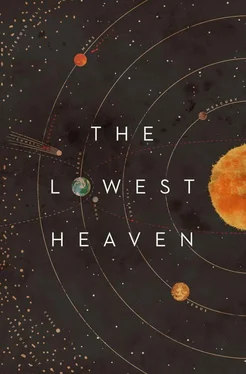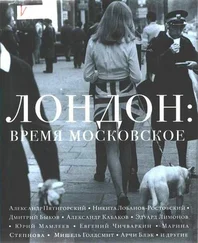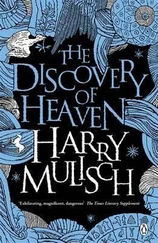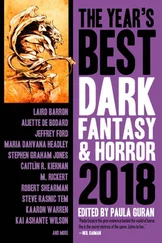Whatever it he’d lost, I wanted to find it and keep it for myself.
My dad was making another mark on the wall. There were three of them now, black X’s in the places where his wedding photos had been. He didn’t like the bare spots in the wallpaper.
I didn’t mind them. Sometimes I poked them with a pin, outlining perforations in each pattern. My first mother left right after I was born. She disappeared without warning, and the day after she left, the good part of the story, my dad discovered a new star. After my second mother walked out, my dad’s team spotted an elusive comet.
“Did you find anything last night?” I asked my dad.
“Why would we?
“I don’t know,” I said. “I just thought you might.”
Volcano gods needed sacrifices, Mr. Loury had said. I thought about Pele and her boys. I wondered if other volcanoes wanted other kinds of sacrifices. I wondered if observatories did.
I didn’t know how telescopes worked. I didn’t know what made up the center of the earth. I had muddled thoughts of lava. How would I know what the sky was made of, or that there was not another sky just beneath the surface of the ground? I thought it might be possible.
I knew that Palomar sometimes got angry. The shutters got stuck closed and the telescope couldn’t see out. There’d been days of malfunction that week, things jammed in the works, and my dad had complained to my third mother about it. A grant had been lost because of observatory failure, and there were salary questions. They needed to find something new, something that would attract media. I’d heard a daylight argument.
“Did the roof open last night?” I asked my dad.
“Yep,” he said, and went back to the X on the wall, going over it with his ballpoint. I thought about the picture that had been there until the day before, my third mother laughing, with her mouth full of cake. I wanted the photo back. I wanted her back. I wanted them all back.
I arranged the sticks on the counter into a triangle, the shortest one at the bottom, until my dad noticed what I was doing and took them away, breaking them on the way into the trash.
“Why’d she go to Alaska?” I asked him. “She never said anything about Alaska.”
He didn’t answer for a moment.
“She likes the cold,” he finally said, and looked at me, his eyes wide and bloodshot behind his glasses. “Leave it alone.”
I walked away from my dad, and up the stairs. I cranked open my bedroom window and looked up at the dark of the mountain.
I’d seen a television program about the explosion of Krakatoa, and in it, there was a fact that haunted me. Rafts made of hardened lava had floated up onto the coast of Africa, even a year later, passengered by skeletons. But maybe those people had been sacrificed to the volcano, and their bones thrown up into the air by the explosion. Maybe Krakatoa had exploded because it didn’t like what it was being fed.
I wondered about my mothers. I wondered about Mr. Loury’s wife. I wondered if there was a hole in the floor of the observatory, and if through it you might be able to see things beneath. I didn’t want to wonder, but I wondered.
Later, I snuck out the window, and into the night. Did I even need to sneak? No one was in charge. No one saw me walking to Mr. Loury’s house. I used my sneaker to open a hole in the top of Mr. Loury’s volcano. After a minute, I used my hands. I was a Krakatoan. I stamped on Mr. Loury’s volcano again, and then put my ear to the ground.
For a long time, I didn’t hear anything.
But then, from far below me, I heard something stamping back, a pounding from the other side of the earth. Then a murmuring. I scratched harder with my hands, shoveling dirt away from the top of the volcano.
A light went on in Mr. Loury’s kitchen, and his screen door opened.
“Hey!” he shouted, but I was gone, sprinting up Palomar, because whatever was in that volcano, I’d heard a sound, a ragged gasp of welcome as I moved the dirt away. And something else had happened too.
I had a piggy bank with thirteen dollars in it. I had three missing mothers. I dodged into the trees, and ran uphill, off the side of the road where he couldn’t follow me. This was my territory. I knew how to run in the woods. He didn’t even try, because he was a grown-up, and he had a car. I heard it start.
Trees leaning in, a no-stars, no-moon night and I thought maybe the sky had been swallowed by the observatory draining the stars into its mouth, sucking the darkness dry. There it was, in front of me, its glowing white snowcone looming against the horizon.
I scraped my hands on my jeans, once, twice, three times, until my palms stung, because from inside Mr. Loury’s volcano, someone’s fingers had reached up and touched mine.
I wasn’t sure about breathing. I could hardly see. One of my knees was skinned. Maybe I was crying. I wanted my dad and I didn’t. I wanted my mothers, even the one I never knew.
There was a set of headlights speeding up the spiral road and the observatory was full of astronomers without wives. Funerals sometimes. Car-crashes and cancer. Other times the wives just went away and no one ever saw them again. This was the way the world worked, I’d imagined, but now I wondered if it really was.
My third mother, I thought and my brain got stuck on it. Katharine, called Kit, who sometimes called me Kit too, and sometimes called me Tool, for toolkit, as in a smaller, more equipped version of herself. But my real name was something else entirely. My dad called me Aulax, after a star. “The Furrow,” that star name meant, and he’d stuck a Mary in as my middle name to make me more human.
The door was unlocked. I skidded in on my heels, and felt along the edge of the room. I knew my way around Palomar. The inside was like nothing, no sky on view, just the telescope stabbing through the sphere, but as I stood there, not hidden, uncertain, the shutters began to open to let the telescope look at the sky.
Mr. Loury’s story was horrible all over my brain. Look down , he said in my head, look underground , and as I thought it, I felt those cold fingers again, touching my own, gripping my own, and I heard a car stop outside.
No one was visible inside the observatory. I wanted to look toward the center of the Earth. I wanted to find my mothers. I didn’t want to think about Alaska. I didn’t want to think about Pele. I didn’t want to think about who was underneath that dirt in Mr. Loury’s backyard, nor about how far down the dirt went.
I ran to the telescope and slung myself up into its workings. The shutters were open and the sky was there, black. I held my breath and climbed.
Mr. Loury was in the building. I could feel him, making his way around the edge of the circle. The telescope was moving, and I was slipping.
“Kid,” he called. “Hey, buddy. Where’re you at?”
I twisted my knees over the beam at the base of the telescope. I’d always wanted to climb the Hale. It was the biggest telescope in the world. Not in the dark.
“This isn’t a place for little girls,” he said, and his voice was closer than I’d thought he was. “They’re going to look at the roots of the world tonight.”
Where were the rest of the astronomers? Where was my dad, for that matter? He was supposed to be here. Nobody was in charge, I reminded myself.
I tied my shirtsleeves to the beam, because I felt the telescope moving. There was a sound, a squealing shudder, which I took for the roof shutters opening further, but when I arched my neck to try to look around the side of the telescope, I couldn’t see anything.
I looked down. There was light below me, and the telescope rotated toward it, my fingers slipping on the metal as we tilted backward. I was not inside the telescope, could not see whatever it was they were seeing there in the cage, but whatever they were looking at, whatever it was they were trying to see, it was in the wrong direction.
Читать дальше












